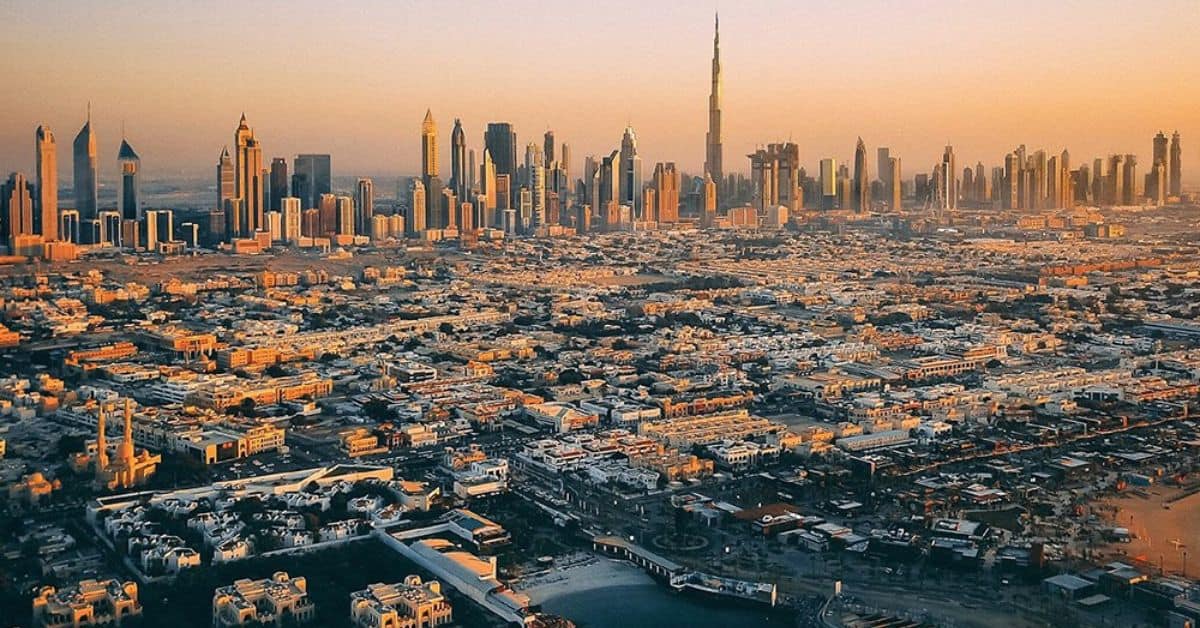Real estate sale transactions in the GCC between January and October 2022 totaled US$143.1 billion, surpassing the full-year figure for 2021 US$136.9 billion, according to new analysis by Kamco Invest.
The report revealed that the UAE (Dubai and Abu Dhabi combined) contributed to over 48 percent of the aggregate value transacted, while Saudi added 35.6 percent to the region’s transactions over January and October 2022.
The higher transaction activity was driven by value transacted in Dubai that increased almost 81 percent y-o-y over the period. Strong demand and price gains were witnessed by luxury residential properties, while the affordable segment also witnessed healthy gains.
The number of transactions in the GCC however declined by 6 percent y-o-y over Jan-Oct 2022 to 511,239 deals despite a jump of over 61 percent witnessed in Dubai, as other markets such as Saudi, Qatar and Kuwait witnessed lower activity as compared to the same period in 2021.
A good performance in 2022
According to the report, all real estate sub-segments in the GCC have performed better in 2022 than in 2021 with residential and quality industrial warehouses witnessing strong price and rental increases. Office supply tailored towards newer sources of demand such as robotics, IT and healthcare will continue to see faster take-up of such spaces.
The strong NOI performance across sub-segments combined with the twin risks of further interest rate hikes and a prolonged period of high rates could potentially have pushed real estate assets in certain geographies into a late-stage expansion stage.
Nevertheless, developers remain cautious of these trends, and are expected to announce project launches that are likely to cater to a more normalized demand environment going forward.
Residential real estate strengthened in 2022
Investor sentiment gained momentum in 2022 and resulted in opportunistic buying in select GCC markets and residential product types, similar to trends witnessed in 2021. As a result, prices rose y-o-y across markets such as Dubai (+9 percent) and Jeddah (+20 percent) at the end of Q3-2022, as per JLL.
Developers continue to provide more flexible payment plans with lower down payments and post completion plans to attract off-plan and first-time buyers, while catalysts and product demand differed across various GCC markets. Abu Dhabi witnessed a surge in demand for both offplan and developed villas within established communities in 2022, with certain developments witnessing double-digits gains y-o-y in percentage terms.
The rising interest rate environment also pushed mortgage buyers to come earlier to the market to lock-in fixed rates for the longest tenure possible across the UAE.
Rents increased by around 20 percent-25 percent y-o-y in Dubai by the end of Q3-2022 based on real estate consultant data, as landlords looked to capitalize on strong market trends. As result, gross rental yields in Dubai expanded by around 70bps by Oct-2022 from the start of the year despite rising prices based on data from Property Monitor.
The consultant further mentioned that yields for apartments was reportedly at 6.87 percent, while average townhouse and villa yields were at 5.97 percent and 5.12 percent, respectively.
Rents across all key residential markets moved up as Doha (+15.0 percent), Jeddah (+11 percent), and Kuwait (+4 percent) followed Dubai in terms of y-o-y increases at the end of 9M-2022.
Saudi’s residential sector’s demand will continue to be driven by Vision 2030’s target of increasing home ownership to 70 percent by end of the decade, and as of mid-2022 the Saudi Real Estate Refinance Company estimates home ownership to have reached above 60 percent. However rising interest rates resulted in lower offtake of mortgages, as the number of mortgages over Jan-Oct 2022 declined almost 20 percent y-o-y.
Moreover, an increase in total employment has driven sale prices of apartments and villas in Riyadh higher by 20 percent-30 percent on average y-o-y at the end of Q3-2022, while similar price rises were witnessed in Jeddah due to constrained supply of high-quality residences.
2023 expectations
Kamco expects to see more normalized demand and price rises in key residential markets, as investors remain cautious due to upcoming supply and rising interest rates, while end-users are likely to focus on affordability.
End-user apartment and townhouse prices are likely to witness slower growth as compared to high-end villas, as buyers become more cautious about house price-to income multiplier ratios. Banks are also likely to look at these parameters more stringently when disbursing mortgages. Rental growth is also likely to be more muted than recent trends witnessed, as tenants look for affordability and factor in relocation costs and signing up for new lease rates which are expected to be higher.
Investors are likely to gauge the residential market more carefully in 2023 due to the higher prices prevalent in the market, which could potentially lead to RE transactions run-rate plateauing going forward. Price growth could also cool-off, driven by more realistic IRR expectations, and with rising mortgage rates. Saudi’s residential sector’s demand will continue to be driven by Vision 2030’s target of increasing home ownership to 70 percent by end of the decade, and as of mid-2022 the Saudi Real Estate Refinance Company estimates home ownership to have reached above 60 percent. However rising interest rates resulted in lower offtake of mortgages, as the number of mortgages over Jan-Oct 2022 declined almost 17 percent y-o-y.








